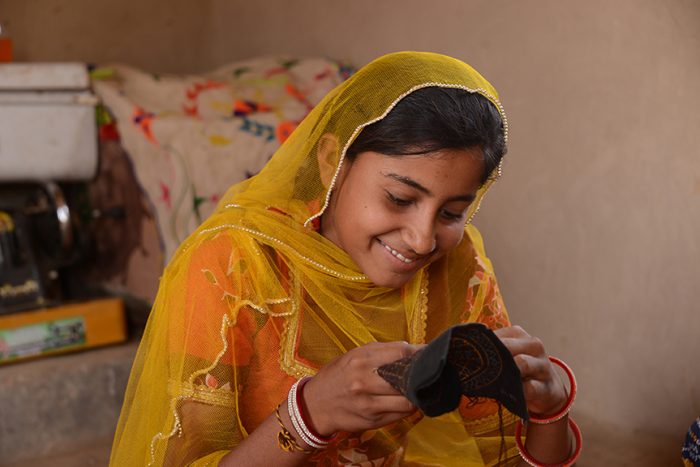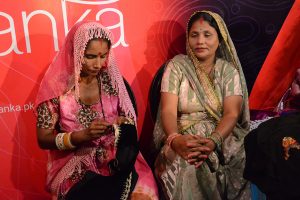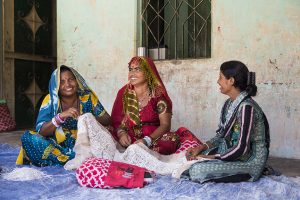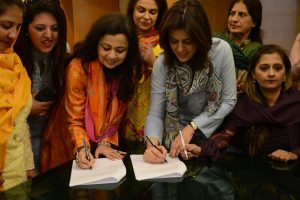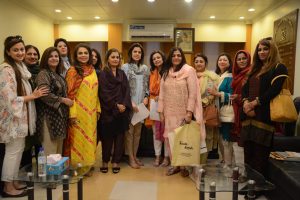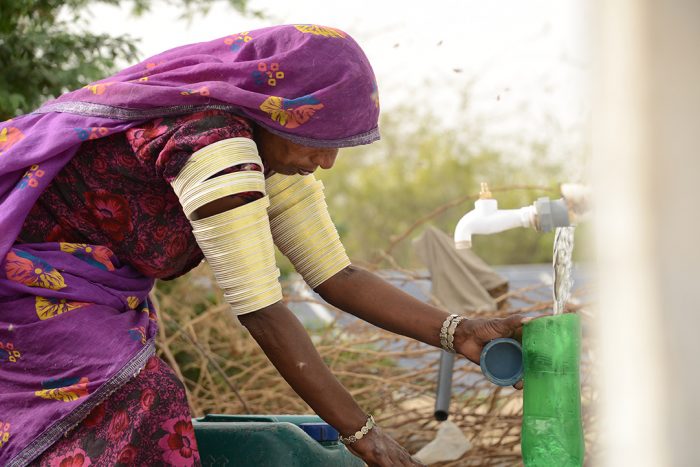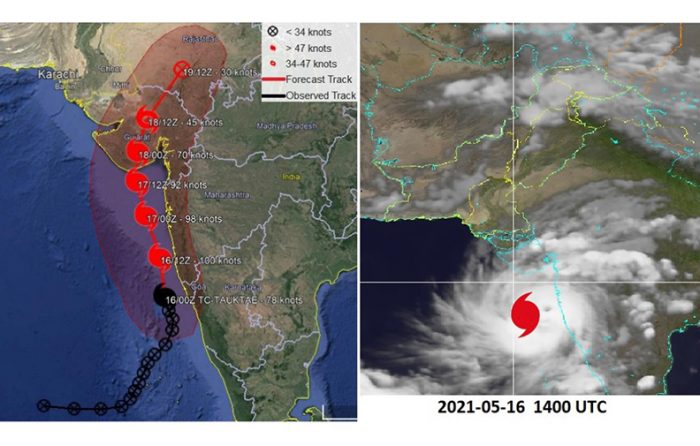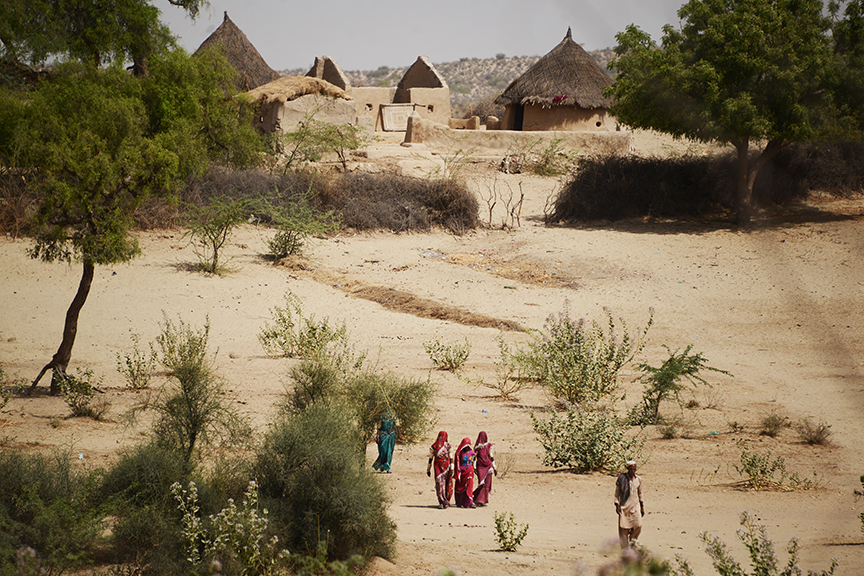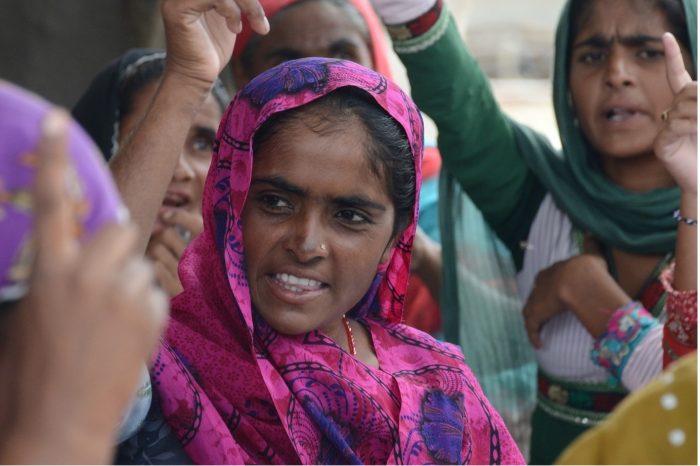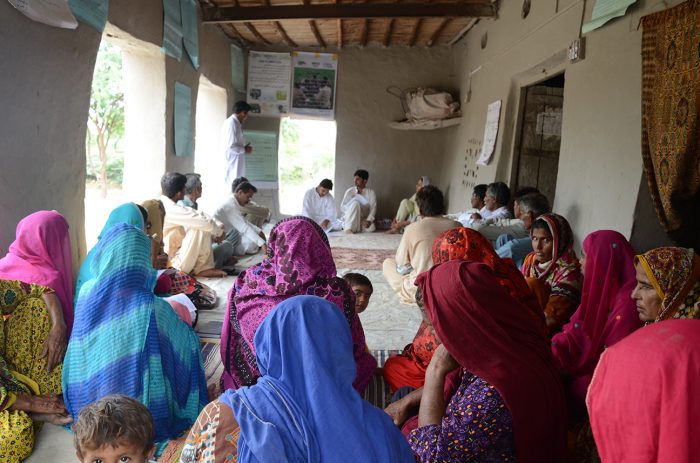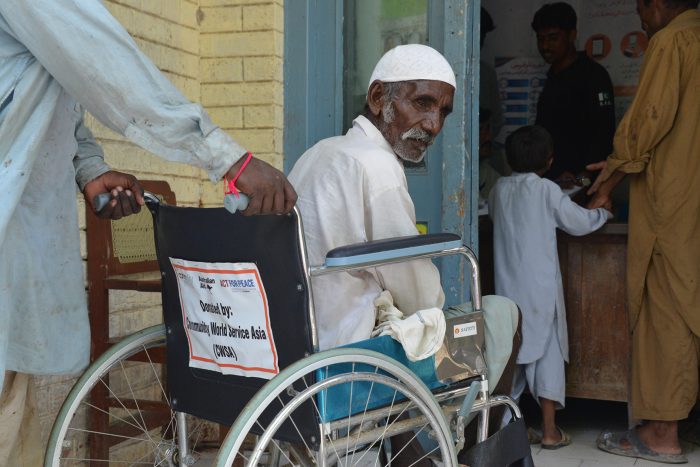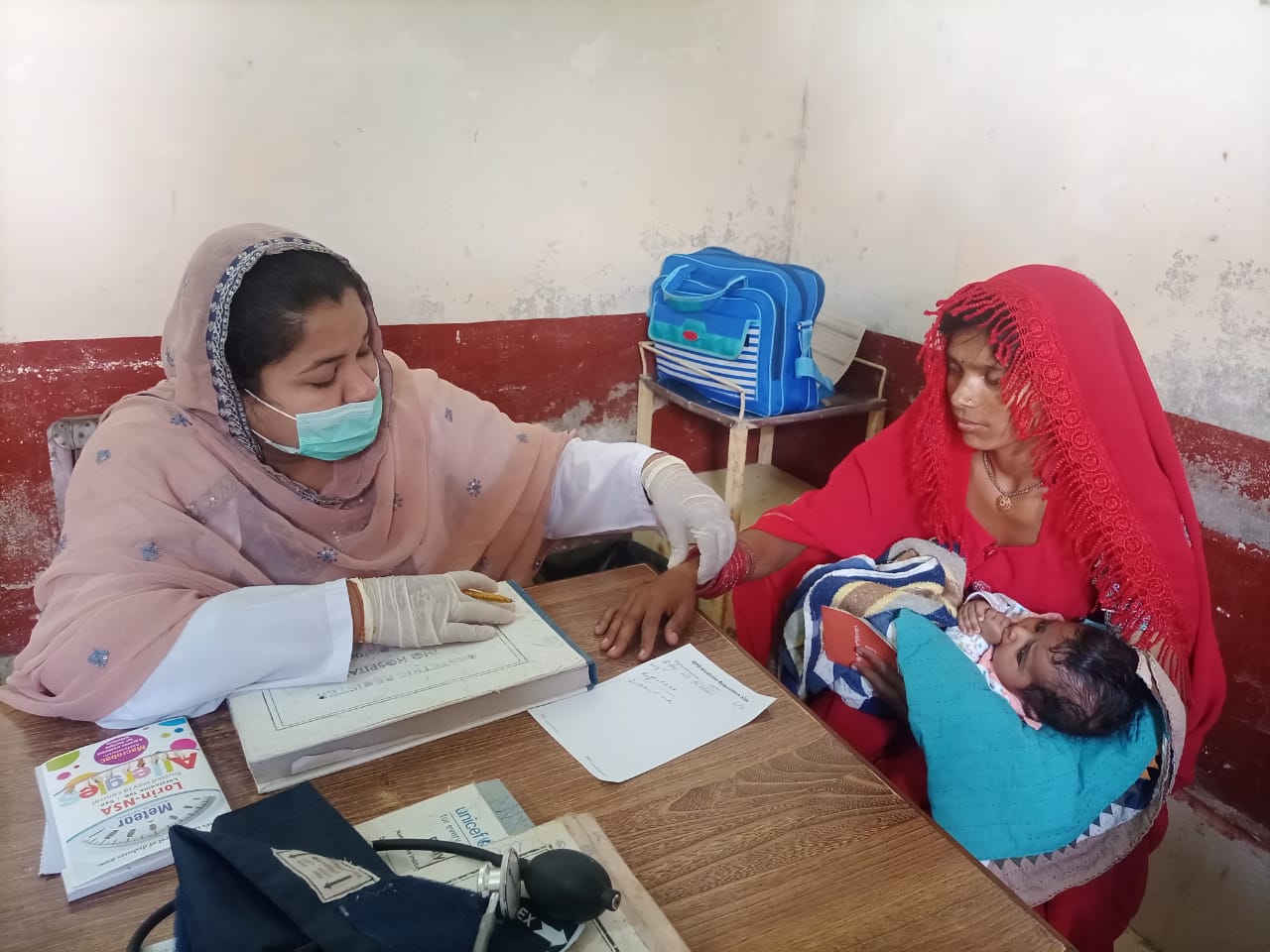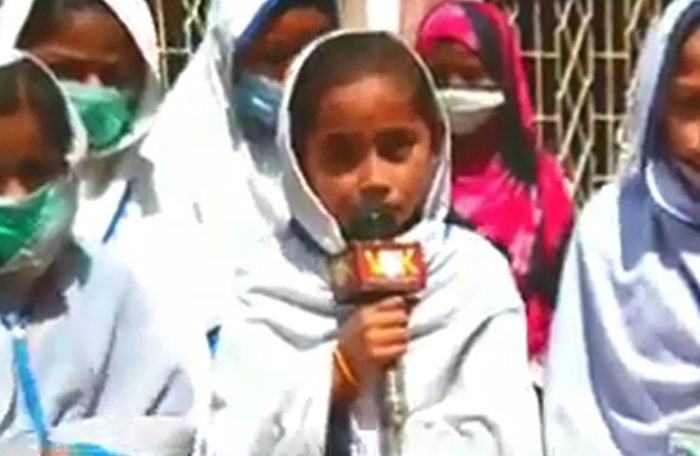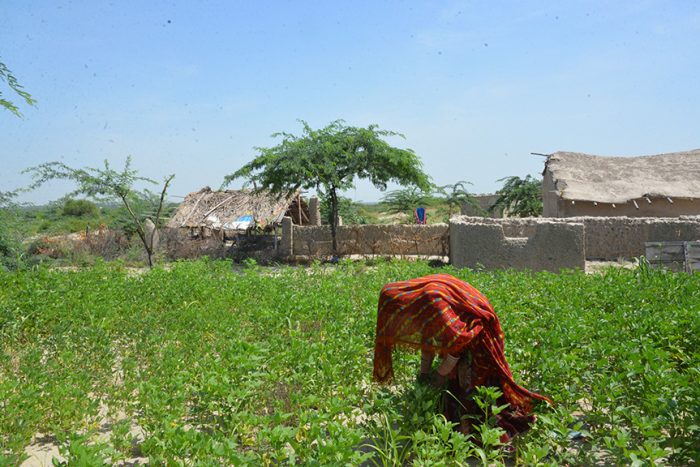The Community-based Management of Acute Malnutrition (CMAM) Surge Approach is designed to enable health systems to effectively treat children diagnosed with acute malnutrition. The CMAM approach relies on the assumption that the number of children with acute malnutrition increases drastically at certain times of the year in many places. Low birth weight owing to poor maternal nutrition, protein-energy malnutrition, anaemia, and iodine deficiency are all major nutritional issues in Pakistan. Since 2013, Pakistan has been a part of the worldwide Scaling Up Nutrition (SUN) effort to address these nutritional issues. Sindh is severely affected by intensifying malnutrition and stunting indicators. As many as 48 percent children under the age of five are stunted while 35pc of them are severely stunted[1].
Aware of the rising rates of acute malnutrition among remote and impoverished communities of rural Sindh, the People’s Primary Healthcare Initiative (PPHI)[2] of Sindh, in collaboration with Community World Service Asia, conducted orientation sessions on CMAM Surge Approach for community-level implementation for early diagnosis and referral of malnourished children in Umerkot district of Sindh.
In June, awareness and orientation sessions on CMAM Surge approach were held in two villages of Umerkot where forty members (both men and women) of village level Health Management Committees (HMC) participated
The sessions focused on the CMAM Surge Model that seeks to improve the resilience of health systems to be able to deliver more efficient and effective medical and preventive treatment for acute malnutrition over time. The focus was on providing the best care during times when cases are at a peak and the need for health services to address these cases is the highest. The potential to save maximum lives is at its greatest then, while ensuring that the capacity and accountability of the public health sector is not undermined.
The CMAM Surge applies an eight step approach to assist health teams in responding to rapid changes in capacity and caseloads. The scaling up of CMAM Surge has resulted in additional learning and adjustments to the methodology that are context-specific. The sessions were facilitated by PPHI and along with thorough learning on the CMAM, nutritional plans, relevant reading material, referral slips and brochures were shared with participants.
In the last six months, 45 cases of malnutrition have been recorded at the MNCHs of Samaro and Pithoro as a result of insufficient food and an absence of a balanced diet. Participants learned about the prevalence of malnutrition and its causes, particularly among children. During the sessions, participants were made aware of the many different forms of malnutrition and how to prevent it. The importance of breastfeeding and consuming a well-balanced diet were stressed upon with participants. A practical exercise was also conducted where participants learned how to measure lactating and pregnant women and children using the Mid-upper Arm Circumference (MUAC) tape.
Learnings of HMC Members:
“I knew very little about malnutrition and the services provided by PPHI to alleviate malnutrition in Sindh. We learned a lot about identifying cases of malnutrition and when and how to refer them to doctors. I will now be able to check children for malnutrition and, if necessary, refer them to the nearest PPHI centre. I also learned that malnutrition is not a disease, but rather a result of human negligence, poverty, unsanitary conditions, and food insecurity. I will sensitise people in my community to maintain hygiene at home and their neighbourhood and provide a healthy diet to their children to avoid malnutrition.”
Chetan Kumar, member of Health Management Committee in Samaro
“The CMAM Surge Model approach is a great way to assist health systems offer treatments to children with acute malnutrition more effectively. Members of the HMC will be able to predict when seasonal caseload surges are likely to occur and will use this information to better prepare themselves for management of services during times of high demand. We were able to gain a thorough understanding of malnutrition, its causes, and how to prevent it. We are now better equipped to refer malnourished children to the nearest PPHI centre for treatment.”
Nabi Bux Solangi, member of Health Management Committee in Samaro
“We discovered that the MUAC is utilised to determine nutritional status of women and children. Because it is simple and inexpensive to use, we can efficiently apply it for active case finding. MUAC is an effective indicator of mortality risk associated with malnutrition, it is therefore a better measure to identify children most in need of treatment. The use of MUAC tape will allow me to immediately refer children with acute malnutrition to doctors in a timely manner.”
Lachmi, member of Health Management Committee in Samaro
“It was my first nutrition training session, and it was a great learning experience. Malnutrition awareness is critical in our community, and individuals must understand how to prevent it. The knowledge on malnutrition, its prevention, and the usage of MUAC tape will help in the mitigation of malnutrition in our village, Mirashah.”
Shanti, member of Health Management Committee in Pithoro
“We were not aware of PPHI’s nutrition program being operated in our vicinity. This session improved our knowledge of malnutrition and its many forms, as well as the use of MUAC tape and the referral of suspicious cases to the PPHI health centre for treatment.”
Sisliya, member of Health Management Committee in Pithoro
[1] https://www.dawn.com/news/1426604
[2] Footnote: PPHI Sindh is a not-for-profit company setup under section 42 of The Companies Act 2017. PPHI Sindh has focused on mother and child health and has continuously improved delivery coverage all over Sindh.




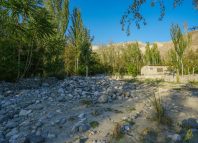
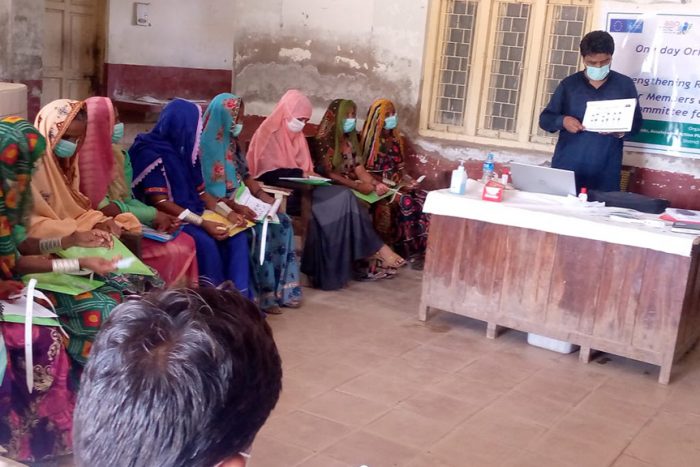
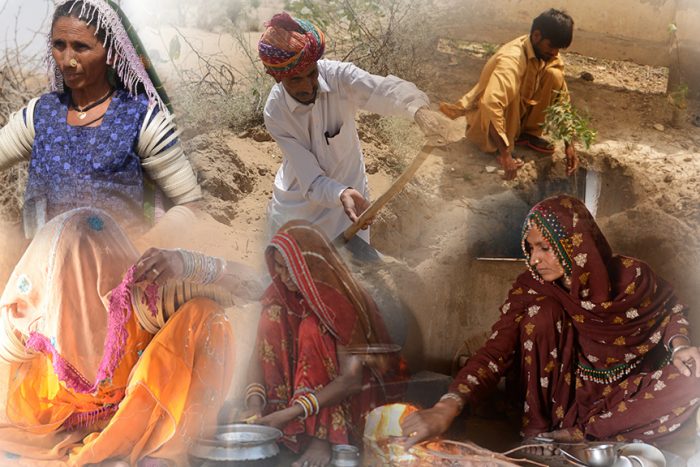
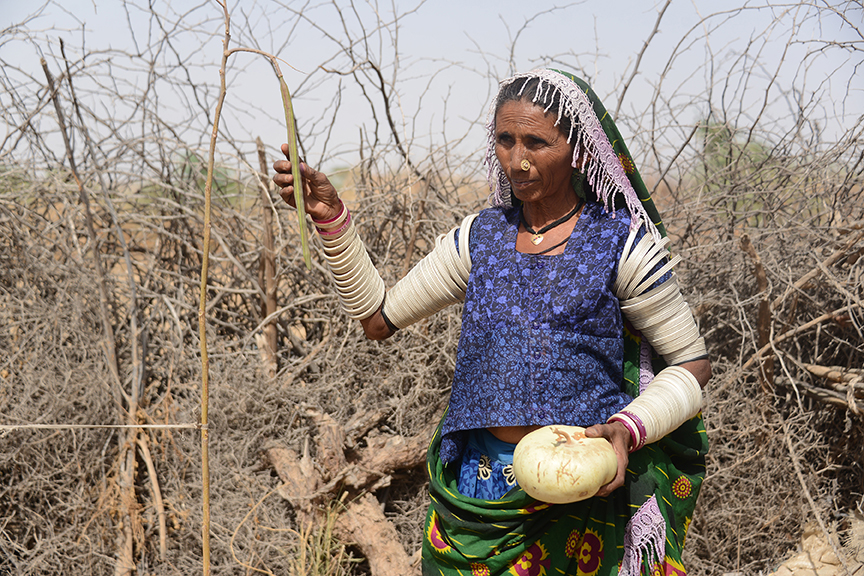
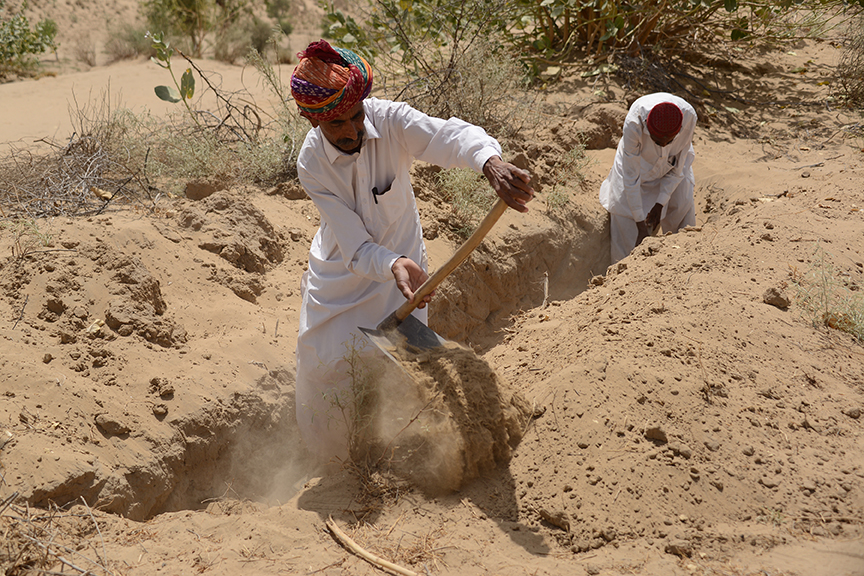 Most local communities in interior Sindh rely heavily on agriculture, but farmers in this region have struggled to cultivate bountiful harvests in the vicinity due to extreme water scarcity, harsh weather conditions and limited knowledge and resources on sustainable farming.
Most local communities in interior Sindh rely heavily on agriculture, but farmers in this region have struggled to cultivate bountiful harvests in the vicinity due to extreme water scarcity, harsh weather conditions and limited knowledge and resources on sustainable farming. Afforestation is key to sustaining the ecosystem and accelerating socio-economic development. Trees have remained a main contributor for sustaining resources including food, fiber, livelihood resources and water. Community World Service Asia has launched aeroculture
Afforestation is key to sustaining the ecosystem and accelerating socio-economic development. Trees have remained a main contributor for sustaining resources including food, fiber, livelihood resources and water. Community World Service Asia has launched aeroculture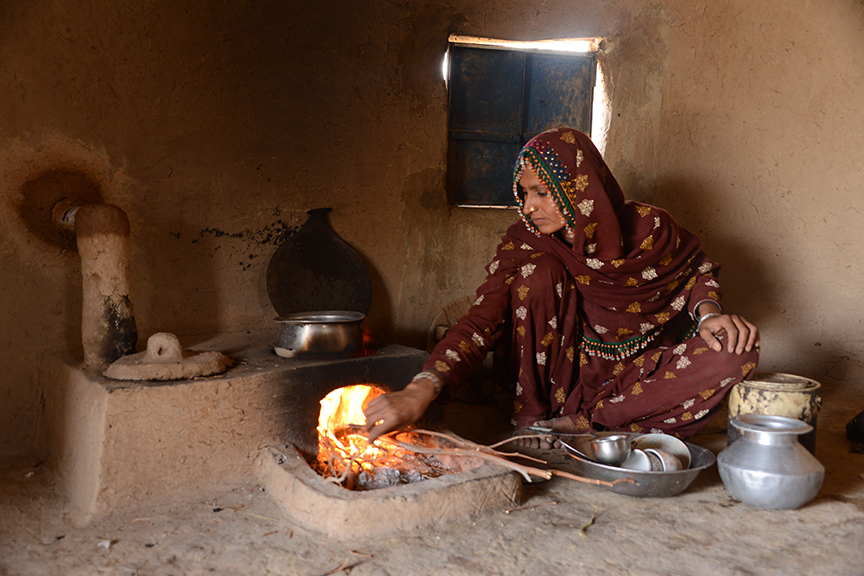 To reduce smoke emissions and decrease deforestation, CWSA, under its Climate Action and Risk Reduction portfolio, is training women on effectively using and adopting a new technology of fuel-efficient stoves in their homes. The fuel-efficient stove is an energy system that has a positive impact on the ecosystem while providing basic cooking needs. The stoves are made of mud and straw enabling caretakers in the house to cook on two burners simultaneously while being able to control the flame at a required temperature. As a result, it reduces smoke emission and fuelwood consumption. A total of forty-seven trainings have been conducted by women community mobilizers for almost a thousand rural women on the use of the stoves and raising awareness among them on its environment-friendly nature. A cleaner environment and reduction in kitchen expenses has been seen as a direct impact of these trainings. More than three thousand stoves have been effectively installed in 2002 households in 16 villages of Umerkot district of Sindh province since 2019.
To reduce smoke emissions and decrease deforestation, CWSA, under its Climate Action and Risk Reduction portfolio, is training women on effectively using and adopting a new technology of fuel-efficient stoves in their homes. The fuel-efficient stove is an energy system that has a positive impact on the ecosystem while providing basic cooking needs. The stoves are made of mud and straw enabling caretakers in the house to cook on two burners simultaneously while being able to control the flame at a required temperature. As a result, it reduces smoke emission and fuelwood consumption. A total of forty-seven trainings have been conducted by women community mobilizers for almost a thousand rural women on the use of the stoves and raising awareness among them on its environment-friendly nature. A cleaner environment and reduction in kitchen expenses has been seen as a direct impact of these trainings. More than three thousand stoves have been effectively installed in 2002 households in 16 villages of Umerkot district of Sindh province since 2019.